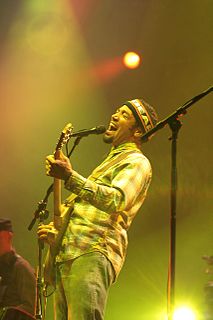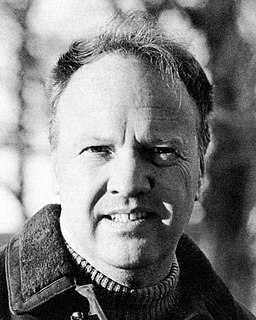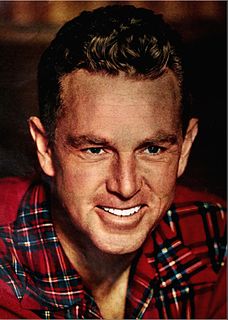A Quote by Robert Penn Warren
For what is a poem but a hazardous attempt at self-understanding: it is the deepest part of autobiography.
Quote Topics
Related Quotes
There is what might be called a Catch-22 of hazardous occupations: The more hazardous the job, the more men; the more men, the less we care about making the job safer. The Catch-22 of hazardous occupations creates a 'glass cellar' which few women wish to enter. Women are alienated not just out of the fear of being hurt on the job, but by an atmosphere that can make a hazardous job more hazardous than it needs to be.
Religion is part of the human make-up. It's also part of our cultural and intellectual history. Religion was our first attempt at literature, the texts, our first attempt at cosmology, making sense of where we are in the universe, our first attempt at health care, believing in faith healing, our first attempt at philosophy.
In classical understanding, education is the attempt to "lead out" from within the self a core of wisdom that has the power to resist falsehood and live in the light of truth, not by external norms but by reasoned and reflective self-determination. The inward teacher is the living core of our lives that is addressed and evoked by any education worthy of the name.
One of the things that was really influential early on was Ezra Pound's Cantos, one poem he worked on for 50 years. It's epic. I had a great deal of difficulty understanding it. One of the problems was you'd be reading along in English and he would move to a Chinese ideogram or French-he actually used seven different languages in a given poem. And for somebody who's not fluent in different languages it has the impact of rupturing your way of understanding something.
The subject of the poem usually dictates the rhythm or the rhyme and its form. Sometimes, when you finish the poem and you think the poem is finished, the poem says, "You're not finished with me yet," and you have to go back and revise, and you may have another poem altogether. It has its own life to live.
People are more interested in reading bombastic ideas, whether they're positive or negative. Part of me has sort of lost interest in doing criticism because of that. I've always realized that criticism is basically autobiography. Obviously in my criticism, it's very clear that it's autobiography, but I think it's that way for everybody.







































